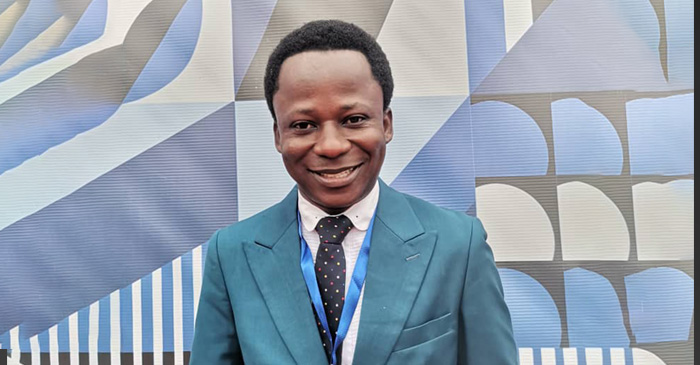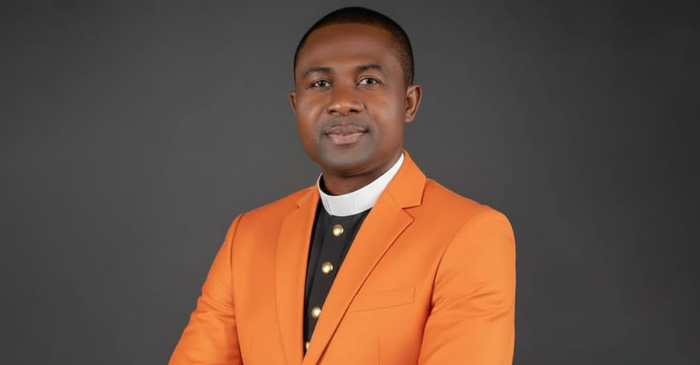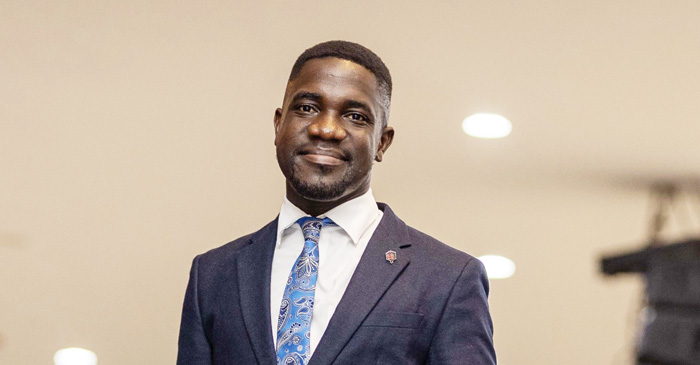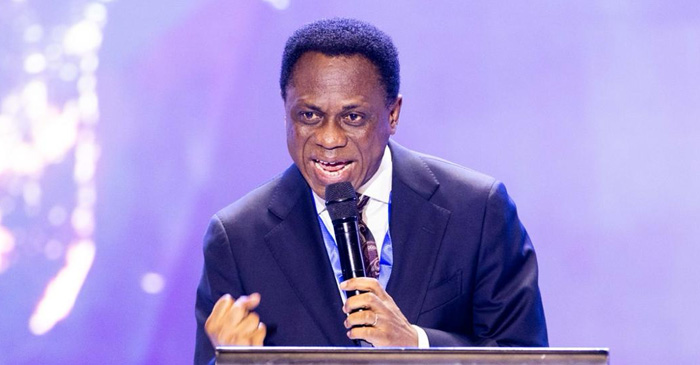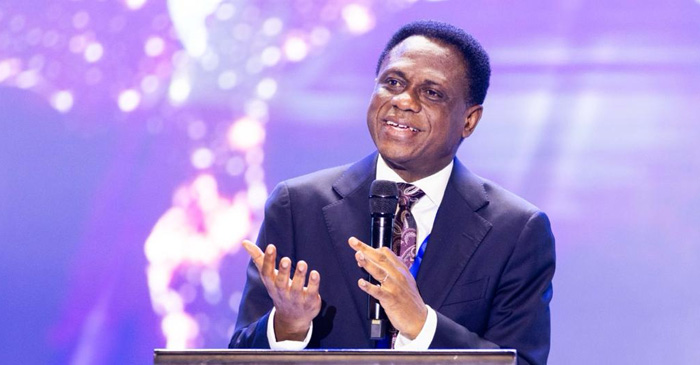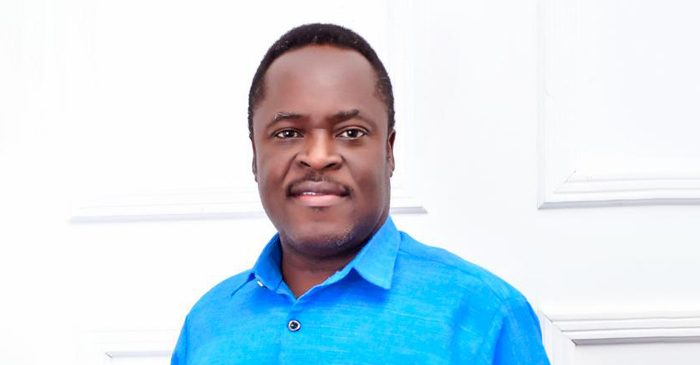
Listening to BBC radio on Thursday, 8th May 2025, I overheard a news headline amongst others, captioned, “Bill Gates said he wanted to die poor…” I initially thought I hadn’t heard that caption well, or it might be the usual sensational spin newscasters put on their news items to attract interest. Paying attention to the particular news item, I realised what the fifth richest person and once the wealthiest person in the world intends to do in the next two decades of his life isn’t far from the news line reported by the British Broadcasting House. I further checked what Mr. Bill Gates said the next morning, and this is what he actually said: “I will give away virtually all my wealth through the Gates Foundation over the next 20 years to cause the saving and improving of lives around the world.” He continued, “People will say a lot of things about me when I die, but I am determined that ‘he died rich’ will not be one of them. There are too many urgent problems to solve for me to hold onto resources that could be used to help people.” Wow!
For a moment, I thought I was seated in church, soaking in one of the thought-provoking sermons from some of my revered servants of God. Although the Bill Gates Foundation has done a lot for humanity across the globe, the phrase, “I don’t want to die rich,” easily strikes a chord with students of the Bible. Are riches evil? No, please, because even the Scripture says God gives people the power to make wealth (Deuteronomy 8:18). Besides, countless rich people in Scripture and around our modern society have been and are still a blessing to the Kingdom business and the world. What would cause a man who has served humanity with a chunk of his resources to suddenly decide to write off virtually the remaining at the twilight of his life? Is there something he is seeing that others cannot see? Is he getting a deeper understanding of wealth that some of us have yet to comprehend? How clearly is one of the wealthiest people in our modern-day world viewing the plights of the poor or needy in society, some through no fault of their own? Why doesn’t he want to be tagged or associated with the rich after his death?
About earthly riches, Jesus said, “It is easier for a camel to go through the eye of a needle than for a rich man to enter the kingdom of God” (Matthew 19:24). The end of the rich man in Jesus’ illustration about life after death is equally concerning and sends shivers down the spine of all who keep a lot that is supposed to be shared. I know and have heard of others who, on their sick bed, decided to give away treasures they never anticipated bequeathing for the benefit of the needy and organisations before breathing their last. Does age or grey hair have anything to do with this depth of appreciation of this temporary life? Is that why King Solomon, the wealthiest among all kings by Jesus’ standard, saw the vain things of this world in his latter days on earth? Some of his latter-year sayings were, “Don’t let the excitement of youth cause you to forget your Creator. Honor him in your youth before you grow old and say, ‘Life is not pleasant anymore’” (Ecclesiastes 12:1).
What of asking God to help us understand the vanities of this life a little earlier or in our youthful years? King David, Solomon’s father, once prayed, “Show me, LORD, my life’s end and the number of my days; let me know how fleeting my life is” (Psalm 39:4). In that case, we can start the divine practice of putting smiles on the faces of many before it is too late—although it is better late than never. As a student of the Good Book, I have humbly picked the following lessons from Bill Gates’ last-minute but game-changing move, which I intend to share:
WE CAN TAKE NOTHING FROM THIS WORLD:
“But godliness with contentment is great gain. For we brought nothing into the world, and we can take nothing out of it” (1 Timothy 6:7). Unfortunately, this Biblical admonition to all humans—that we can take nothing out of this world—only seems real when people are on their sick beds or about to die. I understood the above Scripture well when I attended the burial service of a renowned academic scholar. At the committal ceremony at the cemetery, when the coffin was being covered with earth, I asked why a copy of his numerous certificates was not placed in the coffin. It is impossible to take a penny or a dime with you to the next world. All material possessions and acquisitions are for the use of this temporary life and must not be for the benefit of their owners or family members alone. A deeper insight into this truth would possibly help the living to do even more than what Bill Gates has been doing and planning to escalate within the next few years of his life. Microsoft founder Bill Gates said he intends to give away 99% of his vast fortune over the next 20 years. Gates said he would accelerate his giving via his foundation, with plans to end its operations in 2045. None of our assets would be used appropriately after our exit, so it is better to supervise their judicious use by sharing with others, especially people in need, before it is too late. At 69 years of age this year, may the good Lord, the giver and preserver of human life, grant him the needed space, health, and life to live and supervise this divine assignment in the next 20 years.
THE CAUTION BY JESUS ABOUT PILING UP EARTHLY RICHES STILL RESOUNDS:
There is nothing wrong with the divine blessings of riches and wealth, mainly when used to benefit the Kingdom business and societal transformation. The challenge and tricky part of piling up riches and treasures lies in the motivation and use of such resources. If much of these resources are for personal aggrandisement and self-gratification, then the caution by Jesus would stare at you. One such caution is in Matthew 6:19–21. It reads, “Do not store up for yourselves treasures on earth, where moths and vermin destroy, and where thieves break in and steal. But store up for yourselves treasures in heaven, where moths and vermin do not destroy, and where thieves do not break in and steal. For where your treasure is, there your heart will be also.” The Lord continued, “It is easier for a camel to go through the eye of a needle than for a rich man to enter the kingdom of God” (Matthew 19:24). Having spent about $100bn on health and developmental projects over the years, Bill Gates intends to spend an additional $200bn in the next two decades. By this time, he expects to be out of the league of the world’s wealthy people for his wish to be achieved.
WE DON’T NEED ALL WE CRAVE:
“But if we have food and clothing, we will be content with that. Those who want to get rich fall into temptation and a trap and into many foolish and harmful desires that plunge people into ruin and destruction. For the love of money is a root of all kinds of evil. Some people, eager for money, have wandered from the faith and pierced themselves with many griefs” (1 Timothy 6:8–10). It is an open secret that we don’t need all the material possessions we crave. Just look at your wardrobe or shoe rack, even if you cannot easily lay hold of your bank balances. Indeed, I read somewhere that most people leave at least 70% of their savings or entitlements for relatives and others to spend. This means just a third of our worth should be enough to cater for one’s needs and that of their dependents. The remaining two-thirds are expected to be channeled to the Kingdom business and to transform other lives.
THE JOY OF GIVING TO IMPROVE THE QUALITY OF LIVES IS IMMEASURABLE:
“A generous person will prosper; whoever refreshes others will be refreshed” (Proverbs 11:25). I believe God put something in humankind at creation that brings them indescribable joy anytime others or society smile at their instance. Bill Gates said, “There are too many urgent problems to solve for me to hold onto resources that could be used to help people.” Hebrews 13:16 says, “And do not forget to do good and to share with others, for with such sacrifices God is pleased” (Hebrews 13:16). If you haven’t started sharing your possessions with others, try now and you would be amazed at the extent of fulfilment and meaningfulness life would bring to you. Like Bill Gates, those already sharing must take it to the next level to attain perfection, as Jesus taught the rich young ruler. Wealth is meaningless until it is channeled to improve other people’s lives. Apostle Paul, therefore, instructed Timothy saying, “Command those who are rich in this present world not to be arrogant nor to put their hope in wealth, which is so uncertain, but to put their hope in God, who richly provides us with everything for our enjoyment” (1 Timothy 6:19).
GOD GIVES US TO SHARE WITH OTHERS:
“Whoever is kind to the poor lends to the LORD, and he will reward them for what they have done” (Proverbs 19:17). Did we hear that? Sharing with the poor is tantamount to lending to God, who essentially owns everything. What then are we waiting for? In Proverbs 31:20, the wife of noble character likes to share with others: “She opens her arms to the poor and extends her hands to the needy.” How much must one attain or possess before sharing with others? “Anyone who has two shirts should share with the one who has none, and anyone who has food should do the same” (Luke 3:11). Sharing the additional shirt with the one who doesn’t have one suggests God wants us to share as long as visible needs are unmet. Piling up treasures, goods, food items, or appliances until they are outdated or expired is alien to the Christian faith.
Then comes the million-dollar question:“Do we necessarily have to be admitted to the league or club of the rich before sharing our possessions with others?” Fortunately, no! Although an apparent classification designed by the world qualifies one as rich, Scripture doesn’t rely on such categorisation regarding sharing. Once there’s a spare or enough to share with others, we must do what is needed. So, members of the early church had no such oligarchs, yet they shared whatever each had, which enriched their fellowship. Indeed, some even went to the extent of selling or liquidating their properties to be able to meet the needs of others.
“Jesus answered, ‘If you want to be perfect, go, sell your possessions and give to the poor, and you will have treasure in heaven. Then come, follow me.’ When the young man heard this, he went away sad, because he had great wealth” (Matthew 19:21–22).
“They sold property and possessions to give to anyone who had need” (Acts 2:45).
This practice of helping others or advancing the Kingdom’s business obviously wouldn’t be popular in a culture that prides itself on material possessions and acquisitions. However, God expects both the poor and the rich to share.
“Many rich people threw in large amounts. But a poor widow came and put in two very small copper coins, worth only a few cents. Calling his disciples to him, Jesus said, ‘Truly I tell you, this poor widow has put more into the treasury than all the others. They all gave out of their wealth; but she, out of her poverty, put in everything—all she had to live on’” (Mark 12:41–44).
HUMANS ARE REMEMBERED FOR THEIR GOOD DEEDS AND NOT THEIR FINANCIAL WORTH:
Seldom would you hear the account balances or financial worth of people after they pass on. It is mainly their deeds that people remember them for—especially the good ones. The people we usually remember are those who made a lasting impact in our lives through an act of kindness or generosity. Apostle Paul, in his admonition to the resourceful, said:
“Command them to do good, to be rich in good deeds, and to be generous and willing to share. In this way, they will lay up treasure for themselves as a firm foundation for the coming age, so that they may take hold of the life that is truly life” (1 Timothy 6:17–18).
From the days of Abraham to King Solomon and our modern day, God will never stop raising rich and wealthy people. It is refreshing and thought-provoking to learn about what they do in their world, and what others like Mr. Bill Gates do with their God-given wealth. To live life to its fullest and logical conclusion—no matter the length of days God gives—one is expected to share all their possessions with the needy and be a blessing to their society. By this, we can be sure of the love of God in our hearts.
“If anyone has material possessions and sees a brother or sister in need but has no pity on them, how can the love of God be in that person?” (1 John 3:17).
May God show His love to Bill Gates and continue to bless him.
Written by Apostle James Orhin Agyin



